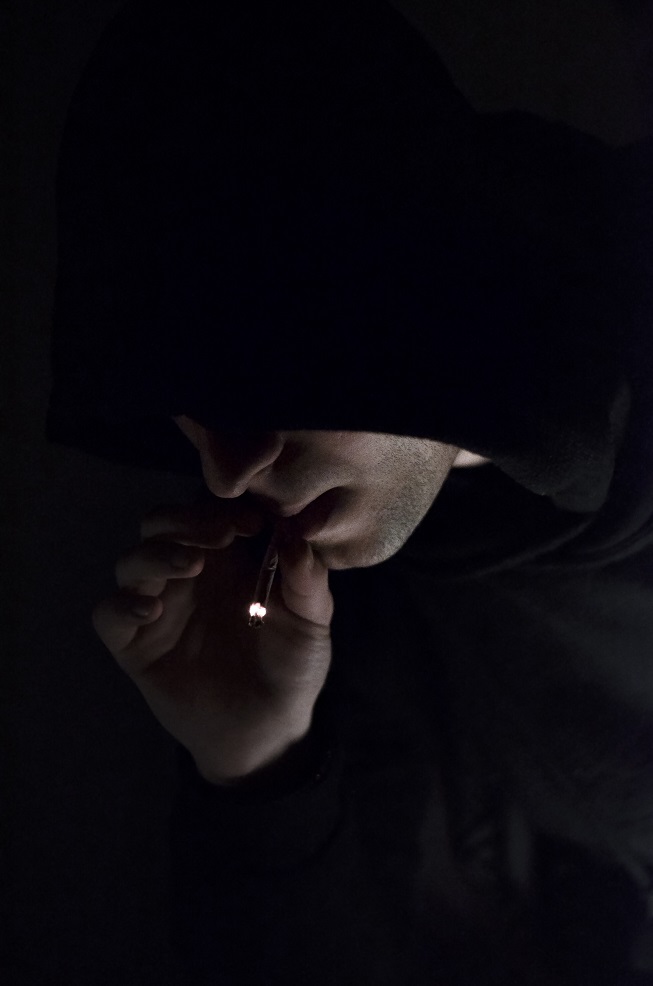For smokers who have been trying without success to quit smoking, psychedelics may be the answer.
Clinical trials involving psychedelics have grown in popularity in recent years, and they have been approved in many areas of the world to treat mental health conditions such as drug and alcohol addiction, depression, and posttraumatic stress disorder (PTSD). Using the hallucinogen in this manner involves micro-dosing under the care of a licensed therapist. With the success scientists have witnessed thus far, especially concerning addictions, the National Institutes of Health (NIH) wondered if there’s a chance that these mushrooms could help people quit smoking.
It is very difficult to quit smoking. Many try, and most fail. Sometimes it takes many tries before the habit is broken, but one-time users still deal with a lifetime of cravings. In fact, “fewer than 1 in 10 smokers” who attempt quitting actually succeed each year, according to the Centers for Disease Control and Prevention (CDC).
Those who want to quit may turn to hypnosis, nicotine patches and gum, medication or trade one bad habit for another. So, if there was something that could provide reliable relief, this would be huge.

Matthew Johnson, a psychedelic researcher at Johns Hopkins Medicine who is leading trial, said, “There’s several existing treatments, both medications and other therapies, but they all have lots of room for improvement. None of the medications help a majority of the people long term. Even six months down the road, it’s pretty small success rates.”
NIH has been awarded a grant to fund a team of scientists at Johns Hopkins University. It’s the first time in 50 years that a federal grant has been given to research involving psychedelics as a possible form of medical treatment. The team will begin their study by the end of the year and will examine whether psilocybin (the psychedelic component of the drug) is able to help participates stop smoking tobacco.
“Until now, the lack of support from NIH on psychedelic research had been a major hurdle in the field,” said Dr. Joshua Woolley, an associate professor of psychiatry at the University of California, San Francisco, alluding to the Food and Drug Administration (FDA)’s pushback.
“The fact that the NIH is now interested in these types of studies is a great thing,” added Dr. Charles Nemeroff, chair of the department of psychiatry and behavioral sciences at Dell Medical School at the University of Texas at Austin. “It’ll provide us with funding to be able to do these controlled studies.”
The clinical trial will include up to 66 participants who will be administered either two doses of psilocybin or two doses of niacin, a type of B vitamin. They will then meet with a therapist. A small pilot study from Johnson and his colleagues previously executed found that psilocybin helped “10 out of 15 people stop smoking for at least one year.”
The group of researchers is also in the middle of studying if psilocybin is specifically more beneficial than nicotine patches. The open-label trial has gathered data on 61 participants, and approximately “half hadn’t picked up a cigarette for a year, compared with 27% of those who were given nicotine patches.”
Anne Levine, 58, from Baltimore, was one of the participants. She reported, “I don’t crave cigarettes anymore, which is the craziest thing, because every time I’ve quit before, I’ve always craved a cigarette. I don’t have that anymore. I don’t have any of that physical desire to smoke or emotional desire to smoke.”
Sources:
Psychedelic drug helped people with alcohol use disorder reduce drinking, study shows
NIH-funded psychedelic trial will study whether hallucinogen can help smokers quit
5-HT2A Agonist Psilocybin in the Treatment of Tobacco Use Disorder
CDC: Smoking Cessation: Fast Facts
Long-term follow-up of psilocybin-facilitated smoking cessation


Join the conversation!